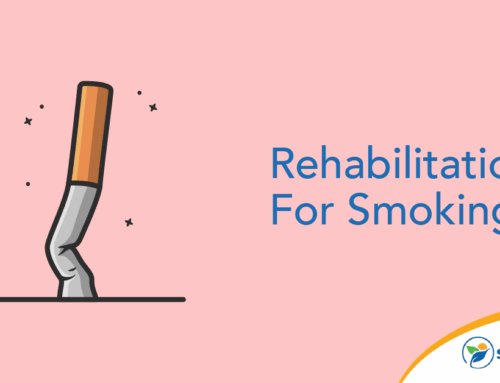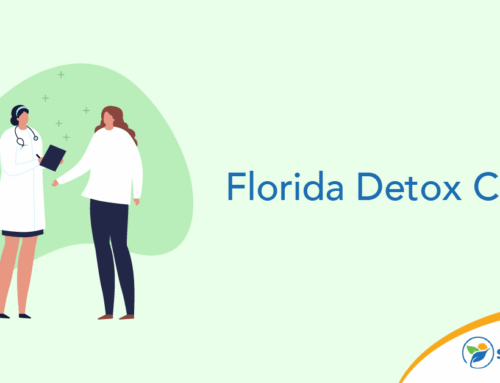For those ready to be free from addiction, financial limitations are often a barrier to accessing effective care. In fact, in one study, 96% of participants with opioid use disorder reported the cost of care delayed them from starting treatment or caused them to drop out. Fortunately, insurance often covers rehab, helping individuals get the support they need in their recovery journey.
Below, we look at the importance of medical detox, the types of treatment covered by insurance and what to expect in terms of out-of-pocket costs.
Understanding Medical Detox and Its Importance
Medical detox is the supervised process of eliminating drugs and alcohol from an individual’s system. This is an important first step in addiction recovery, laying the groundwork for effective treatment. Throughout this process, medical professionals monitor and manage the individual’s symptoms, proactively helping minimize discomfort and health risks.
Because abruptly stopping drug or alcohol use can pose serious health risks, detoxing in a controlled environment under professional monitoring offers a safer, more effective alternative than detoxing at home. Without medical supervision, individuals may experience severe withdrawal symptoms such as seizures, hallucinations or dangerously high blood pressure. Without prompt care, these conditions can become life-threatening.
Why Detox Is Considered Medically Necessary
Substance withdrawal can have a profound effect, both physically and psychologically. Medical detox helps prevent life-threatening complications, particularly in those who have an extensive history of substance use or co-occurring health conditions.
The Physical and Psychological Effects of Substance Withdrawal
Depending on the substance an individual uses, how long they’ve used it and their level of dependence, they may experience a wide range of withdrawal symptoms. Common symptoms include nausea, tremors, insomnia and intense cravings.
In more severe cases, withdrawal can impact vital organs and brain function, triggering seizures, irregular heart rhythms or respiratory distress. Psychological symptoms such as anxiety, depression, paranoia or hallucinations can also occur.
How Medical Detox Prevents Life-Threatening Complications
Medical detox effectively manages the risks of withdrawal, maximizing the individual’s comfort and supporting their safety throughout the early days of treatment. During this time, individuals receive constant monitoring and may be given medication to ease their symptoms and reduce the risk of complications. Trained medical staff are prepared to respond to serious reactions such as seizures, heart issues or dangerously elevated blood pressure. This level of oversight is essential for protecting the individual’s safety and increasing the likelihood of completing detox successfully.
Criteria Insurers Use to Determine Medical Necessity
Health insurance companies typically only provide coverage for services deemed medically necessary. Before approving coverage for medical detox, your health insurance provider might require a diagnosis of a moderate-to-severe substance use disorder, a documented history of withdrawal complications or clinical assessments indicating you’re at an increased risk of experiencing serious side effects.
Types of Insurance That Typically Cover Detox Services
Fortunately, many health insurance plans provide coverage for mental health services, including addiction treatment. To determine whether your insurance covers detox, review your summary of benefits and consider the specific type of coverage you have.
Private Health Insurance Plans
Private health insurance plans offered through employers or the Health Insurance Marketplace are legally required to cover addiction services according to the Mental Health Parity and Addiction Equity Act. However, they provide varying degrees of coverage depending on the specifics of a given plan.
A private plan may require you to receive care from in-network providers. If you receive care from outside the plan’s network, you might be required to pay higher co-pays or coinsurance, or you may not be covered at all. Your plan might cap the number of days it pays for inpatient rehab or detox, and it may limit coverage for outpatient treatment to a certain number of visits per year.
Medicaid and Medicare Coverage for Detox
Medicaid and Medicare both offer coverage for medically necessary detox services. Medicaid coverage varies by state but often includes inpatient and outpatient detox. Medicare Part A may cover inpatient care, while Part B helps with outpatient services. Prior authorization and provider participation in the program may be required.
Other Insurance Options and Assistance Programs
For those without traditional insurance, other options may help cover detox. Employer-sponsored plans, veterans’ benefits through the VA and state-funded programs often provide addiction treatment support. Some rehab centers also offer sliding-scale fees, payment plans or scholarships to make medically supervised detox accessible.
What to Expect in Terms of Coverage and Out-of-Pocket Costs
Even if your health insurance covers addiction treatment services, you’re likely to have out-of-pocket costs associated with care. Understanding these costs before beginning treatment can help you avoid unexpected expenses and plan your budget more effectively.
Typical Costs Associated With Medical Detox
The cost of medical detox can vary considerably, ranging from around $250 to $800 per day, depending on where and how long someone is in treatment. In some cases, there are additional expenses for medications, lab tests and professional monitoring. There may also be hidden costs, such as lost wages or travel and lodging for outpatient care.
Does Insurance Cover Rehab?
If you have a private or government-sponsored health insurance plan, then yes, insurance covers rehab. However, depending on your plan’s rules, you may have cost-sharing obligations such as co-pays, coinsurance and deductibles. If your plan has an annual out-of-pocket maximum, once you reach it, your insurance will typically cover 100% of remaining eligible rehab costs for the year.
How to Verify Your Insurance for Detox Treatment
To verify your insurance coverage for detox treatment, start by reviewing your plan’s summary of benefits or logging into your insurer’s member portal. Look for coverage details under mental health or substance use services. You can also call the customer service number on your insurance card and ask about detox coverage, in-network facilities and any preauthorization requirements.
Many treatment centers, including Sunlight Recovery, offer free insurance verification and can help navigate the process. Confirming coverage in advance helps you avoid unexpected costs and ensures you choose a provider who works with your plan.
Getting Started With Covered Detox Services
Finding a detox facility that accepts your insurance is key to accessing affordable, effective care. Start by checking your insurer’s provider directory or calling to confirm which treatment centers are in-network. You can also reach out directly to facilities to ask about accepted insurance plans. Many offer support with insurance verification to simplify the process.
At Sunlight Recovery, our team is here to help you understand your coverage and get started with medically supervised detox. Contact us today to verify your insurance and take the first step toward recovery.







